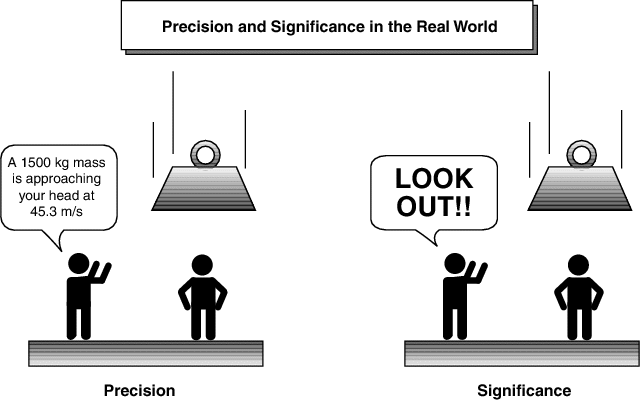There is rich text on persuasive skills from the Greek Age. Aristotle classified Rationale persuasion into three broad categories namely :
1. Pathos[/b] : It refers to touching the audience’s emotions and engage them. The most prevalent emotions known to humans are : Love, sympathy , sadness , Hate , greed and Anger among many others.

Now if you want to raise funds for the welfare of orphans with no shade over their head ; you will have to show the actual adversities faced by them on your presentation , else the message will not sink in. If done like that it will connect with their sympathetic parts and you may find that people who cam just for appearance’s sake will be willing to indulge in philanthropy.
2. Ethos[/b] : This type of rationale is used to fortify your point through vividly conjoining it with your academic credibility or wealth of experience. You would have to pass their test of morality and sensibility – which may vary from one field to the other.

Another issue in this section is of the difference between Precision and Significance. In speeches/presentations it always pays to be more significant than precise. Experienced people often fall into the pit of precision , to showcase their knowledge.What is the difference you ask ? See for yourself …….

For example if there is a seminar on Wild-life conservation ; Who will you listen to ? Jairam Ramesh (environment minister) or Rakhi Sawant (troll) ?
3. Logos : [/b]This is the type of persuasion that gives a warm handshake to the logical & analytical part of our brain. It drives home the message based on pure reason stemming from your research and argument offered in support of the issue at hand.
Now we have all kinds of people in the Audience. Some may prefer pathos,[/b] others may go for ethos[/b] and even logos.[/b] It is always useful to go along with an amalgam of the three to increase your reach and bend the situation on the dais according to your whims.
Here are some suggestions that may be useful in persuading a Hostile audience[/b]:
You should be aware that at best you can only melt the tip of the iceberg. The mountain of ice underneath isn’t exposed to sun – to be heated. So , seeking dramatic degrees of change in the audience will leave you in despair and what more it may end up enraging the audience.
· If you are talking about the misinterpretation of “JIHAD” ; you have to cover all your bases and take precaution while citing and quoting from Quran. Else you will be subject to ignominy.
· Bridge the gap between you and the audience. Make them feel that you are one of them. This is what Rahul Gandhi[/b] does all the time doesn’t he ? It ensures your trustworthiness and breaks down the walls – making people pervious to your thoughts.
· You should be able to monetize time and again on the – “What is in it for you people?” – Part of the speech. Every other point should be able to reach this. It will be like a railway junction, where trains and passengers have to go through; before reaching their destinations. Getting off after pulling the chain; is subject to imprisonment; and you have to convince the people that leaving the hall without hearing you out will hamper their integrity and they will lose out.
1. Pathos[/b] : It refers to touching the audience’s emotions and engage them. The most prevalent emotions known to humans are : Love, sympathy , sadness , Hate , greed and Anger among many others.

Now if you want to raise funds for the welfare of orphans with no shade over their head ; you will have to show the actual adversities faced by them on your presentation , else the message will not sink in. If done like that it will connect with their sympathetic parts and you may find that people who cam just for appearance’s sake will be willing to indulge in philanthropy.
2. Ethos[/b] : This type of rationale is used to fortify your point through vividly conjoining it with your academic credibility or wealth of experience. You would have to pass their test of morality and sensibility – which may vary from one field to the other.

Another issue in this section is of the difference between Precision and Significance. In speeches/presentations it always pays to be more significant than precise. Experienced people often fall into the pit of precision , to showcase their knowledge.What is the difference you ask ? See for yourself …….

For example if there is a seminar on Wild-life conservation ; Who will you listen to ? Jairam Ramesh (environment minister) or Rakhi Sawant (troll) ?
3. Logos : [/b]This is the type of persuasion that gives a warm handshake to the logical & analytical part of our brain. It drives home the message based on pure reason stemming from your research and argument offered in support of the issue at hand.
Now we have all kinds of people in the Audience. Some may prefer pathos,[/b] others may go for ethos[/b] and even logos.[/b] It is always useful to go along with an amalgam of the three to increase your reach and bend the situation on the dais according to your whims.
Here are some suggestions that may be useful in persuading a Hostile audience[/b]:
You should be aware that at best you can only melt the tip of the iceberg. The mountain of ice underneath isn’t exposed to sun – to be heated. So , seeking dramatic degrees of change in the audience will leave you in despair and what more it may end up enraging the audience.
· If you are talking about the misinterpretation of “JIHAD” ; you have to cover all your bases and take precaution while citing and quoting from Quran. Else you will be subject to ignominy.
· Bridge the gap between you and the audience. Make them feel that you are one of them. This is what Rahul Gandhi[/b] does all the time doesn’t he ? It ensures your trustworthiness and breaks down the walls – making people pervious to your thoughts.
· You should be able to monetize time and again on the – “What is in it for you people?” – Part of the speech. Every other point should be able to reach this. It will be like a railway junction, where trains and passengers have to go through; before reaching their destinations. Getting off after pulling the chain; is subject to imprisonment; and you have to convince the people that leaving the hall without hearing you out will hamper their integrity and they will lose out.
